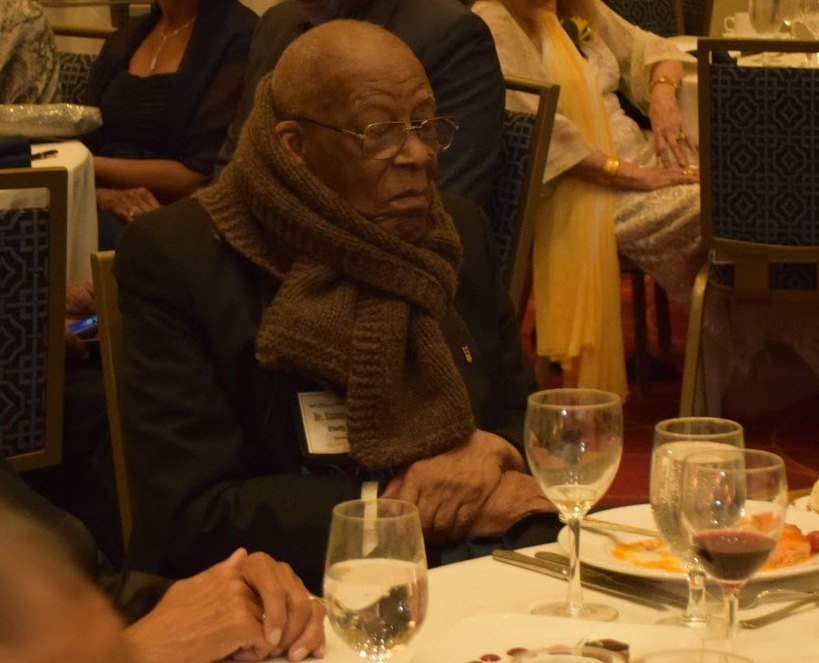[ad_1]
By Mark F. Gray, AFRO Staff Writer, [email protected]
Dr. Samuel L. Myers Sr., president Emeritus of Bowie State University and distinguished graduate of Morgan State University, was honored for a legacy of leadership during a special celebration to commemorate his 100th birthday at the Minority Access National Role Models Conference at the Gaylord Hotel in Oxon Hill.
Dr. Myers, who left a promising career with the State Department to give his life to higher education, is regarded as one of the legendary figures in the fight for equal rights for Historically Black Colleges and Universities (HBCUs) dating back to President Jimmy Carter’s administration of the mid 1970s. After joining 18 other college presidents to establish the National Association For Equal Opportunity in Higher Education (NAFEO), he and former MSU President Dr. Earl S. Richardson were the two most vocal leaders for improving the access to resources Maryland’s HBCUs.

“He gave himself to all HBCUs through his work with NAFEO,” Richardson told the AFRO. “He’s an icon and one of the deans of Black higher education.”
Morgan’s current President Dr. David Wilson remarks reverenced Dr. Myers as “an American hero,” while acknowledging the success of a former student Myers taught as an educator at the northeast Baltimore campus. Black Enterprise founder Earl Graves also benefited from his tutelage as a skilled educator, prior to becoming a magazine publisher and philanthropist.
“He’s a living role model and an icon,” said Dr. Benjamin Chavis, president and CEO of the National Newspaper Publishers Association (NNPA), in his opening remarks, as the master of ceremonies. Chavis promised that the Association would produce weekly HBCU content targeting the academic initiatives being developed and implemented on HBCU campuses, while remaining a multimedia platform that tackles the issues that challenge them.
“Dr. Myers’ legacy lives and thrives throughout all of America’s HBCUs,” Chavis told the AFRO.“
The character of Dr. Myers life and career was defined by stories of his intellectual defiance against a system that treated minority colleges as second-class citizens in the post Jim Crow era. His propensity to strategize and communicate with elected officials was vital to the solvency of HBCUs, making an impact on negotiations with Congress to effect change. The White House Executive Order that directed federal agencies to provide priority funding to HBCUs has been used as the blueprint for acts that benefit Hispanic and Tribal colleges as well.
Dr. Myers’ compassion for students and knack for developing personal relationships during his time as a university president, came alive at the event among the attendees who gathered to honor his legacy. It made the evening exceptionally special. The prevailing sentiment through presentations and personal conversations spoke of a man, who was not only a strong leader, a man, who in brief moments, could change the trajectory of the lives of young impressionable college students, who later became today’s leaders in business, politics and education.
“As a young student coming from Glassmanor in Oxon Hill two years after Dr. Myers’ arrival at Bowie State, he always allowed us to come into D.C. and [he’d] listen to what we, as first-time college students [away] from our families were going through,” Prince George’s County Council member Calvin Hawkins (D-At Large) told the AFRO.
“He was patient, stern, and taught us so much about life. That’s what I will always remember.”
[ad_2]
Source link

